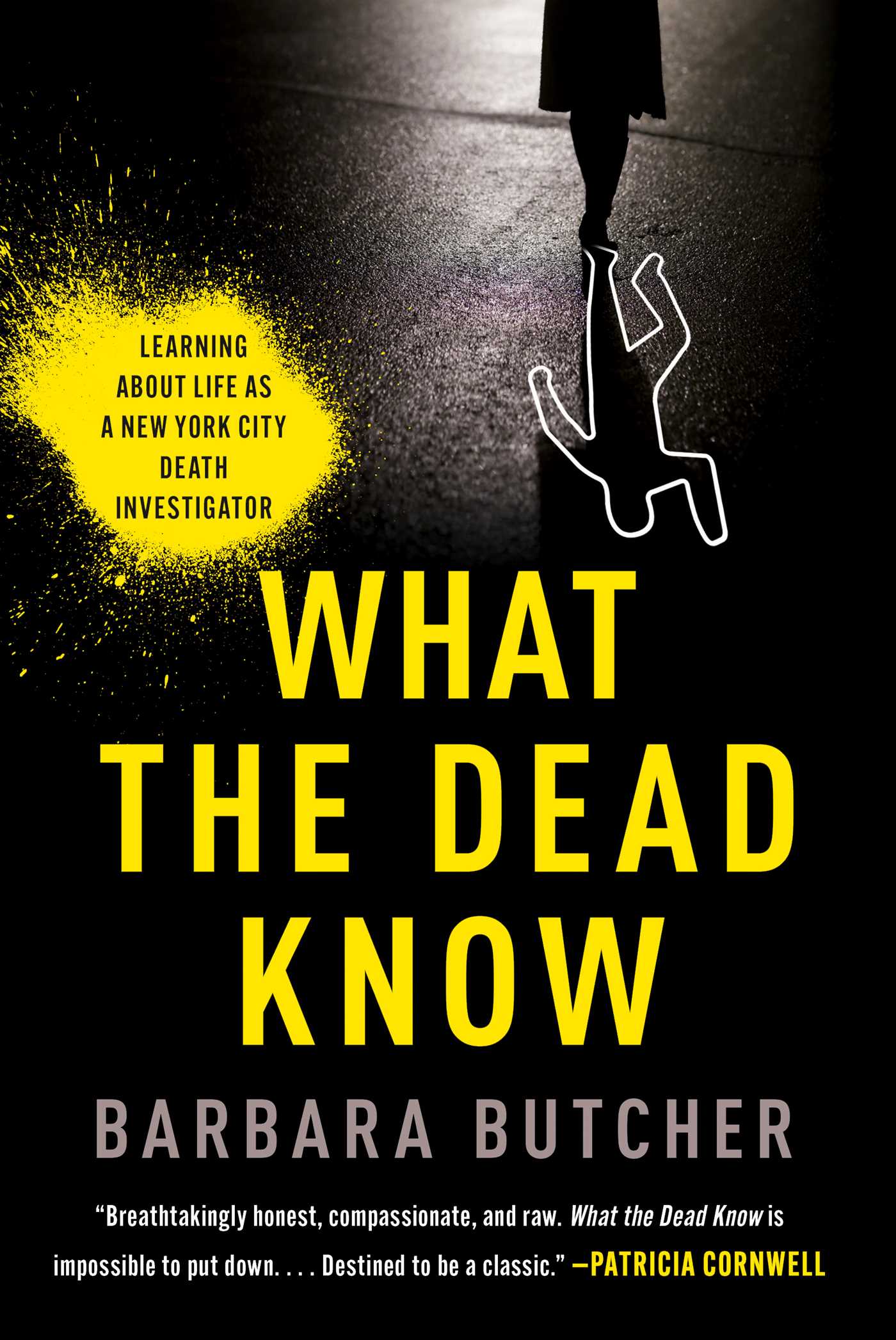
What the Dead Know: Learning About Life as a New York City Death Investigator
Barbara Butcher
Questions & Answers
Barbara Butcher's journey of overcoming alcoholism and self-discovery is deeply intertwined with her professional experiences as a medicolegal death investigator. Her initial struggle with alcoholism led her to Alcoholics Anonymous, where she found support and strength. This journey of self-discovery and recovery provided her with the resilience and introspection needed for her work. As a medicolegal investigator, she encountered a myriad of deaths and human suffering, which both challenged and enriched her life. Her experiences with death and loss, combined with her personal growth, allowed her to develop a unique perspective on life, death, and human nature. This dual journey of personal and professional growth has shaped her into a compassionate and insightful writer, sharing her experiences to help others understand the complexities of life and death.
Barbara Butcher's memoir, "What the Dead Know," offers several key insights into the world of death investigation and the role of the medicolegal death investigator:
-
The Investigative Process: Butcher details the meticulous process of determining the cause and manner of death, often involving complex scenarios and the need for thorough analysis of evidence.
-
Emotional Resilience: She emphasizes the emotional toll of the job, the need for detachment, and the importance of maintaining a professional demeanor while dealing with extreme situations.
-
Impact on the Living: The book highlights how death investigations not only deal with the deceased but also have a profound impact on the families and communities of the deceased.
-
Professional Development: Butcher's journey from a novice to a seasoned investigator showcases the importance of continuous learning, mentorship, and the development of technical and interpersonal skills.
-
The Role of Science: The memoir underscores the critical role of scientific methods, such as autopsies, toxicology, and forensics, in understanding and solving deaths.
-
Personal Growth: Butcher's narrative also reflects her personal growth and self-discovery, illustrating how her experiences in death investigation have shaped her identity and life.
Barbara Butcher's narrative reflects the complexities of human behavior through her detailed accounts of her experiences with serial killers and other criminals. She illustrates the diverse motivations behind their actions, from organized planning to impulsive behavior. Butcher's descriptions of serial killers like Tony Lee Simpson and George Cobo highlight their contrasting personalities and methods, showcasing the organized versus disorganized nature of their crimes. Her narrative also delves into the psychological aspects of these criminals, revealing their coldness, cunning, and charm. Additionally, Butcher's own journey as an investigator reflects the challenges of understanding and dealing with such extreme behavior, emphasizing the complexity of human nature and the intricacies of criminal psychology.
Barbara Butcher's experiences as a medicolegal death investigator offer profound insights into society's understanding of death, loss, and the human condition. Her narrative highlights the complexities of grief, the resilience of the human spirit, and the importance of empathy and justice. By sharing her experiences with various forms of death, Butcher underscores the universality of loss and the need for support systems for those affected. Her work also underscores the significance of thorough investigations to ensure justice for the deceased and closure for the living. Furthermore, her journey from addiction to a fulfilling career demonstrates the potential for personal transformation and the power of community support. Her story encourages society to confront the realities of death and loss with compassion and understanding.
Barbara Butcher's narrative evolves from a focus on her personal struggles with alcoholism and self-discovery to a deep exploration of her professional life as a medicolegal death investigator. Initially, the book is introspective, detailing her journey through addiction and recovery, highlighting her self-awareness and resilience. As the narrative progresses, her professional identity takes center stage, revealing her meticulousness, empathy, and dedication to her work. Her evolution from a recovering alcoholic to a respected professional is marked by her growing confidence and expertise in death investigation. This transition underscores her transformation from a self-centered individual to someone who finds purpose and fulfillment in helping others and seeking justice for the deceased. The book ultimately showcases her journey from personal healing to professional mastery, illustrating her growth as both a person and a professional.